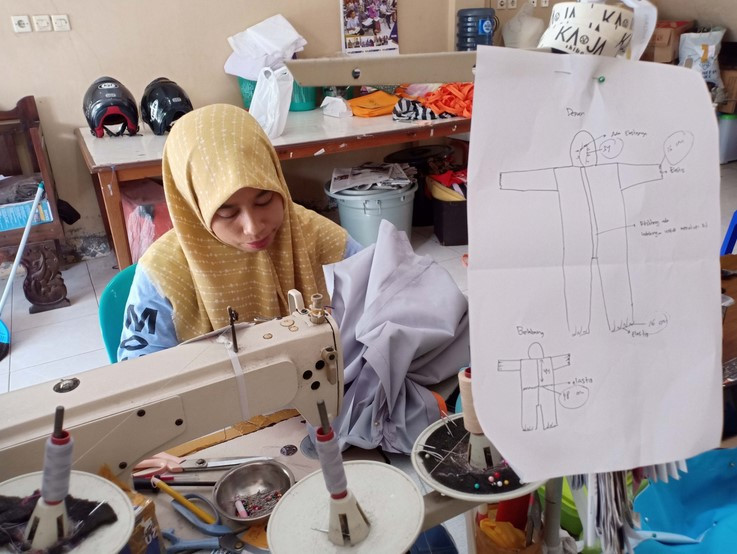Popular Reads
Top Results
Can't find what you're looking for?
View all search resultsPopular Reads
Top Results
Can't find what you're looking for?
View all search resultsSmall business, big impact: The importance of MSMEs in small towns
Change text size
Gift Premium Articles
to Anyone
I
t is no surprise that the COVID-19 pandemic, despite showing signs of abating, has wreaked havoc on the Indonesian economy. Even as the country is on the rebound, the pandemic’s effects are still being felt across industries, including micro, small and medium enterprises (MSMEs).
A recent report by Bank Indonesia shows that approximately 87.5 percent of Indonesian MSMEs have been affected by the pandemic, with 93.2 percent seeing their sales negatively affected. Not helping matters is a lack of knowledge and digital access for MSMEs in small towns, presenting a challenge for simple survival.
Research by the National Development Planning Agency (Bappenas) found that throughout 2020, MSMEs were largely unfamiliar with digital platforms, especially in smaller towns.
According to the 2021 East Ventures Digital Competitiveness Index, digital competitiveness is mainly dominated by provinces in Java, whereas other regions, such as Nusa Tenggara and South Sulawesi, rank lower on the list.
This conundrum can be attributed to several factors, such as internet penetration and logistics issues. East Ventures found that a more advanced logistics facility would have a positive impact on economic growth, even on a smaller scale.
Just ask Jessyca Putri Maslie, a seller at Pasar Poris in Tangerang, Banten, who has been in the business for 16 years. As the pandemic brought about social restrictions, she saw a significant slump in sales.
Not to be deterred, Jessyca turned to GrabExpress, allowing her usual customers to shop on demand with instant delivery. Even as markets have reopened, she has continued to utilize online services, as technology allows her to increase her revenue by up to three times the usual pre-pandemic amount.
Fauziah Yusuf, a florist based in Makassar, South Sulawesi, said the GrabExpress service provided convenience for many small business owners like her. For instance, the service allowed Fauziah to make five different deliveries at once, while her customers could be reassured of a prompt delivery.
Meanwhile, Ratno Sanjoko, proprietor of the Surabaya, East Java-based drugstore E-Medica, noted that he had focused on online sales through GrabExpress, allowing his business to provide timely service and products while also respecting health protocols in place. Currently, E-Medica has two stores in the city and has experienced approximately 60 percent more business than before the pandemic.
Sancayarini, or Rini as she prefers to be called, is the owner of the clothing brand Kana Goods. During the pandemic, the store where her merchandise was stocked had to close.
Undaunted, she shifted online, where, through GrabExpress, Kana Goods has regained its sales figures, even reaching more customers than when the brand was exclusively available offline.
As MSMEs have shifted online to survive, it is quite clear that the local economy will also grow side-by-side. MSMEs, which the MSMEs and Cooperatives Ministry estimates make up 99.99 percent of all Indonesian businesses, employ 97 percent of the total workforce.
Taking into account the government target of having 30 million MSMEs in the digital ecosystem by 2024, it is clear that collaboration is essential and vital to the success of the digital transformation.
Grab and Emtek Group, which announced their strategic collaboration earlier in July, reaffirm their commitment to supporting MSMEs in small towns and regencies in Indonesia. The two companies will also hold Festival Kota Masa Depan (Future Cities Festival), targeting 4,500 MSMEs with a focus on integrated support programs.












